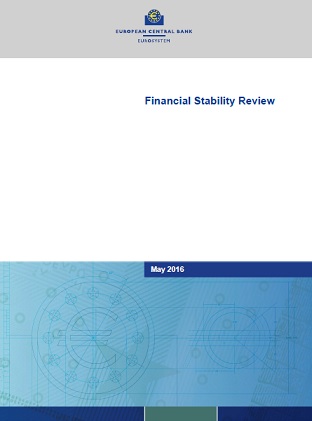Kai Liua, Kjell G. Salvanes, Erik Ø. Sørensen, (2016), “Good skills in bad times: Cyclical skill mismatch and the long-term effects of graduating in a recession”, European Economic Review, Volume 84, Μάϊος We show that cyclical skill mismatch, defined as mismatch between the skills supplied by college graduates and skills demanded by hiring industries, is an important mechanism behind persistent career loss from graduating in recessions. Using Norwegian data, we find a …Read More
How average hours worked varies with development: Cross-country evidence and implications
Alexander Bick, Nicola Fuchs-Schündeln, David Lagakos, (2016), “How average hours worked varies with development: Cross-country evidence and implications”, Voxeu, 4 Ιουνίου The development accounting literature tries to account for cross-country output per worker differences by taking stock of inputs per worker. The data employed are often measured without great precision, however, making comparisons difficult. This column presents a new, internationally comparable dataset of average hours worked per adult across the world …Read More
Forecasting unemployment across countries: The ins and outs
Regis Barnichon, Paula Garda, (2016), “Forecasting unemployment across countries: The ins and outs”, European Economic Review, Volume 84, Μάϊος This paper evaluates the flow approach to unemployment forecasting proposed by Barnichon and Nekarda (2012) for a set of OECD countries characterized by very different labor markets. We find that the flow approach yields substantial improvements in forecast accuracy over professional forecasts for all countries, with especially large improvements at longer horizons (one-year …Read More
State aid, bail-in, and systemic financial stability in the EU
Stefano Micossi, Ginevra Bruzzone, Miriam Cassella, (2016), “State aid, bail-in, and systemic financial stability in the EU”, Voxeu, 6 Ιουνίου Following the financial crisis, the EU banking system is still plagued by widespread fragilities. This column considers the tools and legal provisions available to EU policymakers to address moral hazard and incentives encouraging excessive risk-taking by bankers. It argues that the new discipline of state aid and the restructuring of …Read More
The European Central Bank’s QE: A new hope
Tomasz Wieladek, (2016),“The European Central Bank’s QE: A new hope”, CEPR DP 11309, Ιούνιος estimated on monthly data from 2012M6 to 2016M4. We assess the total impact via a counter-factual exercise, country-by-country and through alternative transmission channels. QE anouncement shocks are identified with four different identification schemes as in Weale and Wieladek (2016). We find that in absence of the first round of ECB QE, real GDP and core CPI …Read More
The role of social trust in building corporate resilience to systemic banking crises
Ross Levine, Chen Lin, Wensi Xie, (2016), “The role of social trust in building corporate resilience to systemic banking crises”, Voxeu, 3 Ιουνίου Although banking crises are costly, common, and heavily researched (e.g. Reinhardt and Rogoff 2009, Laeven 2011), there is surprisingly little research on corporate resilience to systemic banking crises. While almost all countries experience crises, corporations in different countries and industries respond very differently to those crises. In a …Read More
Determinants of euro-denominated corporate bond spreads
Elizaveta Krylova, (2016), “Determinants of euro-denominated corporate bond spreads”, ECB Working Paper 1912, Ιούνιος 2016 This paper computes time-varying indicators of the relative importance of different credit spread determinants, including rating, sector and country attribution as well as the coupon rate, maturity and liquidity on the basis of the comprehensive dataset of individual bonds. Additionally, it decomposes variances of rating-specific (country- and sector-specific) spread indices into the impacts of explanatory variables. …Read More
Voter Turnout in European Parliament Elections: A Spatial Analysis
Nadia Fiorino, Nicola Pontarollo, Roberto Ricciuti, (2016), “Voter Turnout in European Parliament Elections: A Spatial Analysis”, CESifo Working Paper No. 5910, Μάϊος In European Parliament elections turnout rates, traditionally lower than in national parliamentary elections, decrease from one elections to the next, and show strong variations within and between countries. What explains this decline? Why are there such big differences between and within the EU member countries? This paper investigates these …Read More
Can Minimum Wages Raise Workers’ Incomes in the Long Run
George Economides, Thomas Moutos, (2016), “Can Minimum Wages Raise Workers’ Incomes in the Long Run”, CESifo Working Paper No. 5913, Μάϊος 2016 Using an intertemporal model of saving and capital accumulation with two types of agents (workers and capitalists) we demonstrate that it is impossible for any binding minimum wage to increase the after-tax incomes of workers if the production function is Cobb-Douglas with constant returns to scale, or if there …Read More
Financial Stability Review
European Central Bank, (2016), “Financial Stability Review”, ECB, Μάιος The Financial Stability Review (FSR) assesses developments relevant for financial stability, including identifying and prioritising the main sources of systemic risk and vulnerabilities for the euro area financial system – comprising intermediaries, markets and market infrastructures. It does so to promote awareness of these systemic risks among policymakers, the financial industry and the public at large, with the ultimate goal of …Read More





